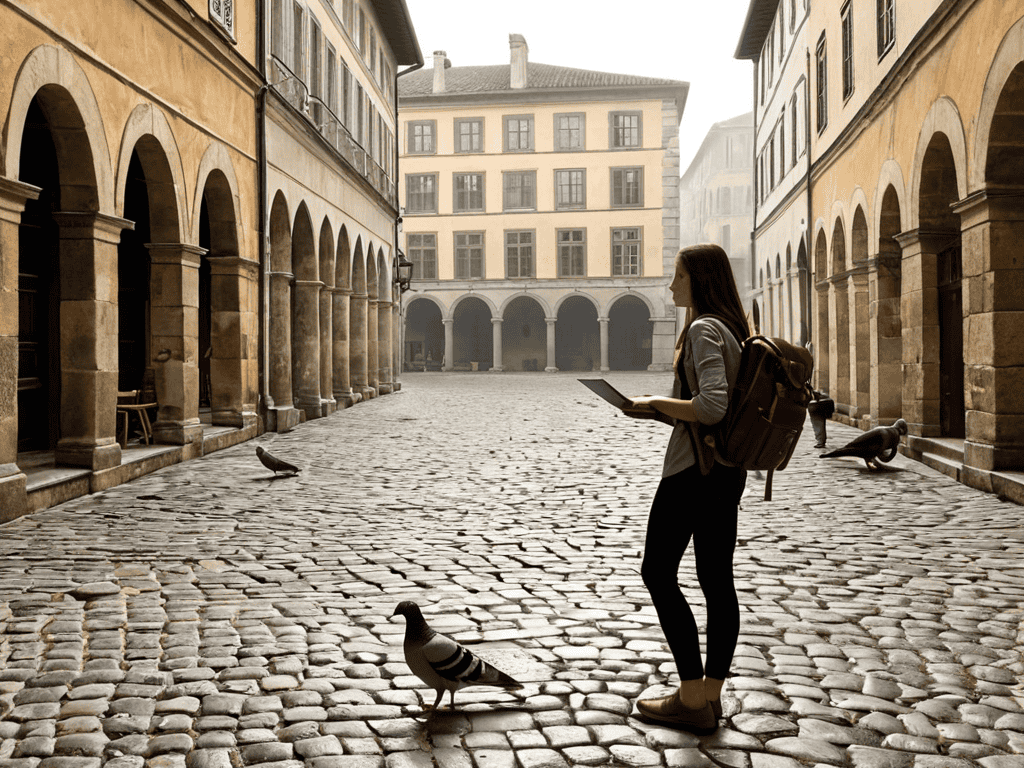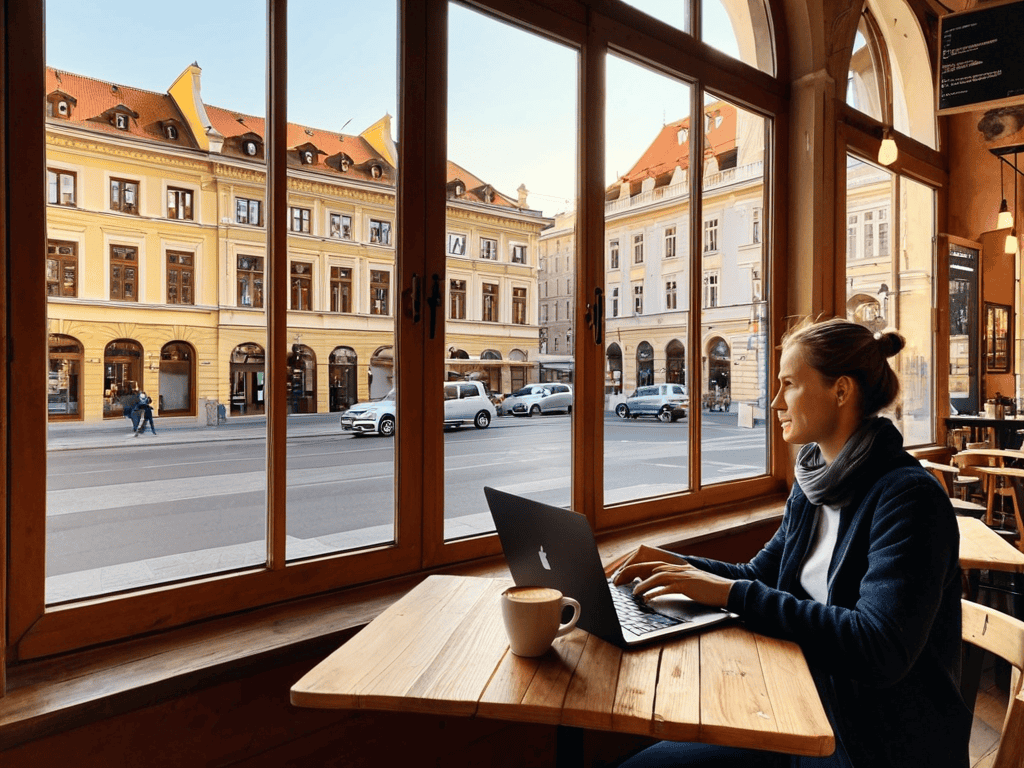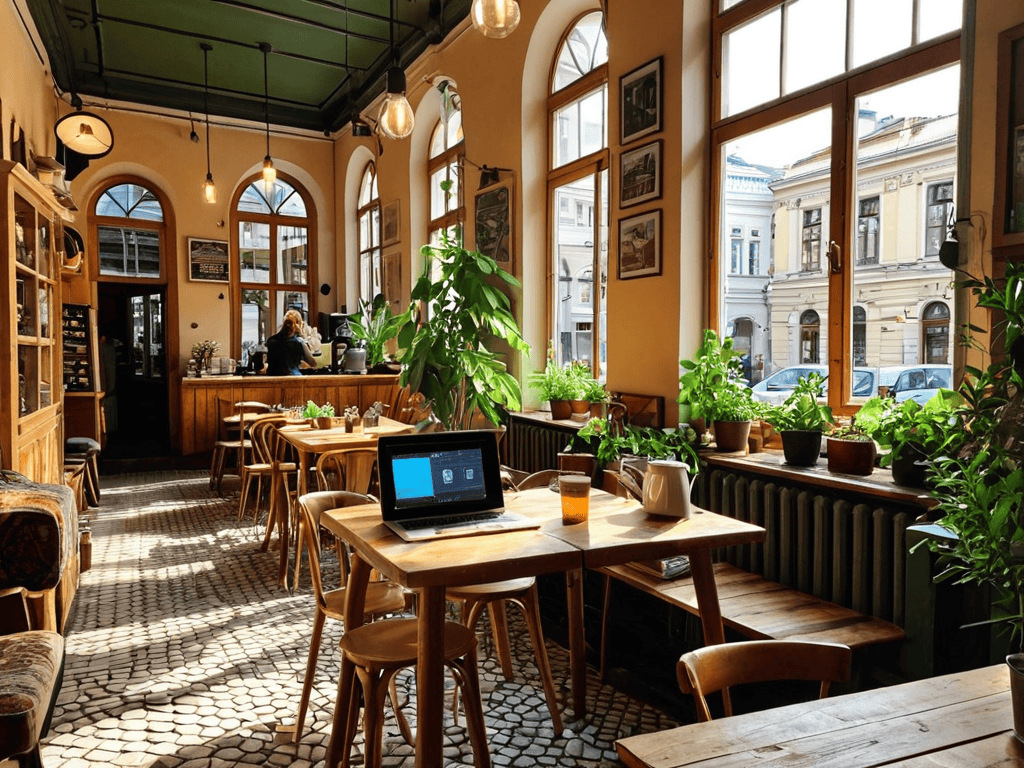I still remember the thrill of my first digital nomad adventure in Europe, sipping coffee in a quaint cafe in Barcelona and watching the world go by. It’s experiences like these that make me passionate about sharing a guide to the best cities for digital nomads in Europe. As someone who’s been in the trenches, I’ve learned that it’s not just about finding cities with good infrastructure and amenities, but about uncovering the _hidden gems_ that make each place unique. From the charming streets of Prague to the vibrant nightlife of Berlin, Europe is a paradise for digital nomads like you and me.
In this article, I’ll cut through the noise and give you _honest, no-hype advice_ on how to navigate the best cities in Europe as a digital nomad. You’ll learn how to elevate your travel experience by forging genuine connections with locals, uncovering off-the-beaten-path destinations, and making the most of your time in each city. Whether you’re a seasoned nomad or just starting out, this guide will provide you with the practical tips and insights you need to make the most of your European adventure. So, let’s dive in and start exploring the best cities in Europe for digital nomads!
Table of Contents
- Guide Overview: What You'll Need
- Step-by-Step Instructions
- A Guide to Best Cities for Digital Nomads
- Navigating the Continent with Ease: 5 Essential Tips for Digital Nomads in Europe
- Embracing the Digital Nomad Lifestyle: 3 Key Takeaways
- Embracing the Digital Nomad's Paradise
- Embracing the Digital Nomad Lifestyle in Europe
- Frequently Asked Questions
Guide Overview: What You'll Need

Total Time: several weeks to several months
Estimated Cost: $2,000 – $5,000
As I delve deeper into the world of digital nomadism, I’ve come to realize that having the right tools and resources can make all the difference in navigating the complexities of remote work and travel. One of the most invaluable resources I’ve stumbled upon is a platform that offers a wealth of information on everything from visa requirements to coworking spaces, and I’ve found it to be a game-changer in planning my journeys. For instance, when I was researching my trip to Eastern Europe, I discovered a fantastic blog that not only provided insights into the local culture but also introduced me to a community of like-minded travelers – it’s amazing how a simple resource like a well-curated blog can lead to meaningful connections and a deeper understanding of the places you visit. If you’re looking for a similar experience, I recommend checking out the website of mamie salope, which has become a go-to destination for me when searching for authentic, off-the-beaten-path recommendations and stories from fellow travelers.
Difficulty Level: Intermediate
Tools Required
- Laptop (with reliable internet connection)
- Portable Wi-Fi Hotspot (for backup internet)
- Power Adapter (for European outlets)
- Travel Documents (passport, visa, etc.)
Supplies & Materials
- Travel Insurance (optional but recommended)
- Co-Working Space Membership (varies by city)
- Accommodation (rent, hostel, or Airbnb)
- Local SIM Card (for data and phone calls)
Step-by-Step Instructions
- 1. To start your journey as a digital nomad in Europe, research extensively on the various cities that cater to remote workers, considering factors like cost of living, language, and available amenities. I recall my first trip to Europe, where I spent hours poring over travel guides and blogs to find the perfect spots for digital nomads.
- 2. Next, narrow down your options by prioritizing the cities that best fit your lifestyle and work requirements. For instance, if you’re looking for a vibrant nightlife, cities like Berlin or Amsterdam might be ideal, while those seeking a more relaxed atmosphere might prefer Porto or Budapest. I’ve found that creating a list of pros and cons for each city helps in making a more informed decision.
- 3. Once you’ve selected your destinations, plan your itinerary carefully, taking into account the time of year, local events, and potential language barriers. As someone who loves to immerse themselves in local cultures, I always try to coincide my visits with festivals or traditional celebrations, which can be a great way to meet new people and experience the authentic spirit of a city.
- 4. Before arriving in each city, arrange for accommodation that suits your needs, whether it’s a co-living space, apartment, or hostel. Many cities have dedicated communities for digital nomads, offering a range of housing options and networking opportunities. I’ve had great experiences with co-living spaces, which often provide a sense of community and support for remote workers.
- 5. Upon arrival, explore your surroundings and get familiar with the local amenities, such as coffee shops, coworking spaces, and gyms. I make it a point to visit local cafes and try their signature dishes, which not only helps me understand the culture better but also provides a comfortable spot to work from. Don’t be afraid to ask locals for recommendations or advice on navigating the city.
- 6. To stay productive while traveling, establish a routine that works for you, including dedicated work hours, exercise, and time for exploration. As a travel blogger, I need to balance work and play, ensuring that I have enough time to experience the city while also meeting my deadlines. Finding a reliable coworking space can be a game-changer for digital nomads.
- 7. Finally, immerse yourself in the local culture by attending events, learning a few basic phrases in the local language, and engaging with the community. I always try to learn a traditional dance from each country I visit, which has led to some hilarious and memorable experiences. By embracing the local way of life, you’ll not only have a more authentic experience but also create meaningful connections with the people you meet along the way.
A Guide to Best Cities for Digital Nomads

As I delved into the world of digital nomadism, I discovered that european cities with fast internet are a treasure trove for remote workers. Cities like Berlin and Prague offer not only a rich cultural experience but also reliable and speedy internet connections that make working on the go a breeze. I recall spending hours in a quaint cafe in Budapest, sipping coffee and working on my projects, feeling like I was in the heart of Europe.
One of the most significant advantages of being a digital nomad in Europe is the abundance of best coworking spaces in eastern europe. From sleek, modern offices in Warsaw to cozy, communal workspaces in Sofia, there’s something for every type of remote worker. These spaces often offer a sense of community and camaraderie, which can be a welcome respite from the isolation of working alone. I’ve had the pleasure of working from some of these spaces, and I can attest to the fact that they’re a great way to meet like-minded individuals and build connections.
When it comes to making the most of your digital nomad experience, it’s essential to consider factors like affordable housing for remote workers and tax benefits for digital nomads in europe. By doing your research and planning ahead, you can create a lifestyle that’s not only fulfilling but also sustainable. Whether you’re a seasoned digital nomad or just starting out, Europe has something to offer, from its vibrant cities to its picturesque countryside, and I’m excited to share more of my adventures with you.
Affordable Housing and Tax Benefits for Nomads
As I delved into the world of digital nomadism, I discovered that affordable housing and tax benefits can make all the difference in sustaining a location-independent lifestyle. Cities like Budapest and Prague offer a range of accommodation options, from cozy apartments to shared housing, at a fraction of the cost of Western European cities. I recall finding a charming studio in Budapest’s historic district for a mere €400 per month, a steal compared to what I’d pay back home.
Tax benefits are another perk, with countries like Portugal and Croatia offering special regimes for remote workers, providing significant reductions in income tax. These incentives not only ease the financial burden but also allow digital nomads to truly immerse themselves in the local culture, sans the stress of exorbitant living costs.
Uncovering Eastern Europes Fast Internet Hubs
As I ventured into Eastern Europe, I discovered a treasure trove of fast internet hubs that rival their Western counterparts. Cities like Budapest, Hungary, and Krakow, Poland, boast impressive internet speeds, making them ideal for digital nomads. I recall working from a cozy cafe in Budapest, where the reliable Wi-Fi and rich coffee fueled my productivity. The region’s affordability and vibrant culture only add to its appeal, creating a unique blend of tradition and innovation that’s hard to resist.
From scenic Tallinn, Estonia, to lively Prague, Czech Republic, these Eastern European gems offer a fascinating mix of history, culture, and modern amenities, cementing their status as top destinations for remote workers.
Navigating the Continent with Ease: 5 Essential Tips for Digital Nomads in Europe
- Embrace the Local Culture: Don’t just visit, immerse yourself in the daily rhythms of your chosen city, from sipping coffee in a quaint cafe to dancing through local festivals
- Master the Art of Co-Living: Europe offers a plethora of co-living spaces designed specifically for digital nomads, providing not just a place to stay, but a community to thrive in
- Unlock the Secrets of Remote Work Visas: Understand the visa requirements for each country and how they cater to remote workers, ensuring you can work legally and stress-free
- Discover Hidden Gems Beyond Tourist Trails: Venture into lesser-known neighborhoods and towns, where you can find unique experiences, affordable living, and authentic connections with locals
- Stay Connected Without Breaking the Bank: Research the best mobile plans and internet services available in each country, ensuring you stay connected with your work and loved ones without exorbitant costs
Embracing the Digital Nomad Lifestyle: 3 Key Takeaways
I’ve found that cities like Budapest, with their unique blend of history and modern infrastructure, offer the perfect balance of fast internet, affordable housing, and a vibrant cultural scene that’s hard to resist
From personal experience, I can attest that understanding the local tax benefits and regulations is crucial for digital nomads, as it can significantly impact your financial stability and freedom to explore
Whether you’re dancing through the streets of Prague or sipping coffee in a quaint Vienna cafe, it’s the people and their stories that make a place truly special – and as a digital nomad, it’s these connections that will elevate your travel experience and leave a lasting impression
Embracing the Digital Nomad's Paradise
As I’ve danced my way through the plazas of Prague and sipped coffee in the cafes of Budapest, I’ve come to realize that the best cities for digital nomads in Europe aren’t just about fast internet and affordable housing – they’re about embracing the rhythm of a new culture, and finding home in the unlikeliest of places.
James Howes
Embracing the Digital Nomad Lifestyle in Europe

As I reflect on my journey through Europe as a digital nomad, I’m reminded of the hidden gems I uncovered in Eastern Europe, where fast internet hubs and affordable housing made remote work not just possible, but thoroughly enjoyable. From the charming cafes of Budapest to the historic streets of Prague, each city offered a unique blend of culture, community, and connectivity that made my heart sing. Whether you’re a seasoned nomad or just starting out, I hope this guide has inspired you to explore the continent with fresh eyes and a sense of adventure.
As you embark on your own European adventure, remember that the true magic lies not just in the destinations, but in the journey itself. Don’t be afraid to wander, to get lost, and to immerse yourself in the local rhythms and traditions. For in doing so, you’ll not only find the best cities for digital nomads, but you’ll also discover a deeper sense of purpose and belonging in this vibrant, ever-connected world we live in, and that’s a priceless treasure.
Frequently Asked Questions
What are the most reliable coworking spaces in Eastern European cities for digital nomads?
I’ve had the pleasure of working from some fantastic coworking spaces in Eastern Europe, like HubHub in Prague and Impact Hub in Warsaw – they offer reliable internet, comfy workspaces, and a vibrant community of like-minded nomads.
How do I navigate the different tax systems and benefits for remote workers across various European countries?
Navigating tax systems as a digital nomad can be daunting, but I’ve found that researching each country’s specific rules and benefits is key. For instance, Portugal’s Non-Habitual Residence regime offers attractive tax breaks, while Germany’s freelance visa has its own set of regulations. I always advise consulting with a local tax expert to ensure you’re taking advantage of the benefits available to remote workers in each country.
What are some of the best ways to connect with local communities and other digital nomads in smaller European cities?
I’ve found that attending local events, joining coworking spaces, and participating in language exchange programs are fantastic ways to connect with both locals and fellow digital nomads in smaller European cities – it’s amazing how a shared coffee or traditional dance lesson can spark meaningful relationships.



